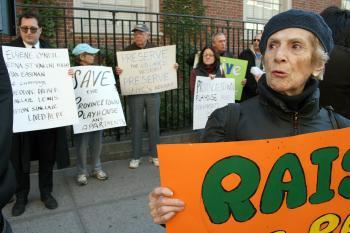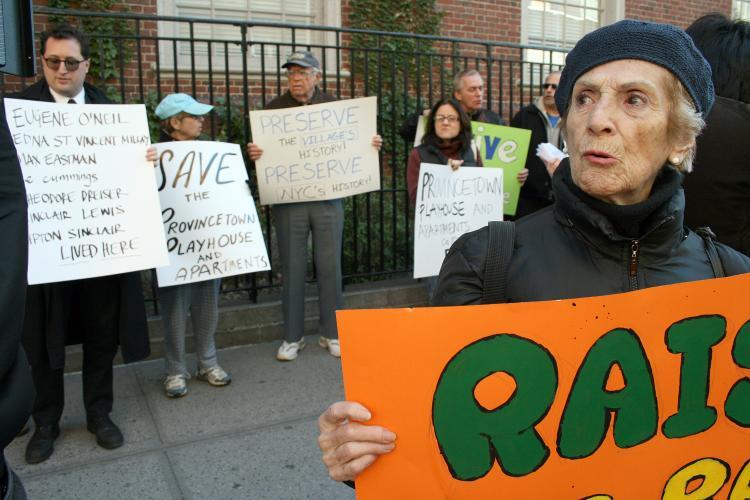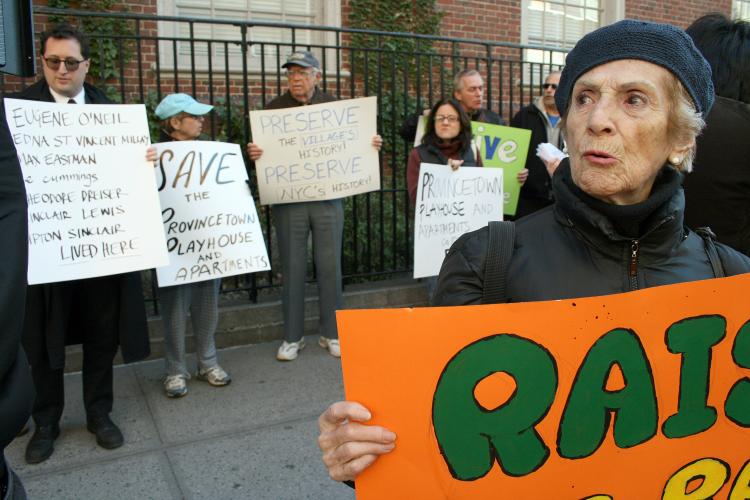Greenwich Village History Faces Wrecking Ball
The Greenwich Village community has protested NYU’s plans to demolish the Provincetown Playhouse on Monday.

DEMOLITION STANDOFF: Activists protest the planned demolition of a beloved historic theatre, Provincetown Playhouse, in the Village on Monday. The building is owned by NYU, which plans to construct a new law school building on the site. (R) Emily Silver-Fabella Stevens, Producer, Director, Writer. Katy Mantyk/Epoch Times
|Updated:




